To be a safe driver, adhering to a set of simple yet crucial actions can make all the difference. Let’s take a detailed look at these seven essential behaviors that can ensure a secure and pleasant driving experience.
1. Don’t Accelerate Rapidly When Passing Through Intersections
When the traffic light turns green and it’s time to move forward at an intersection, the temptation to accelerate quickly is common among many drivers. Eia naʻe, this seemingly innocent act can have perilous consequences. Intersections are complex areas where multiple elements converge – vehicles, pedestrians, and sometimes cyclists. Speeding through these junctions increases the risk of unforeseen incidents.
ʻo kahi laʻana, imagine a situation where a pedestrian is still crossing the road, partially hidden by other vehicles. A driver accelerating rapidly might not have enough time to react and brake, resulting in a tragic accident. Eia kekahi, the blind spots created by the surrounding vehicles can make it difficult to spot pedestrians running the red light. Such incidents often occur due to the hasty decision to speed up at intersections.
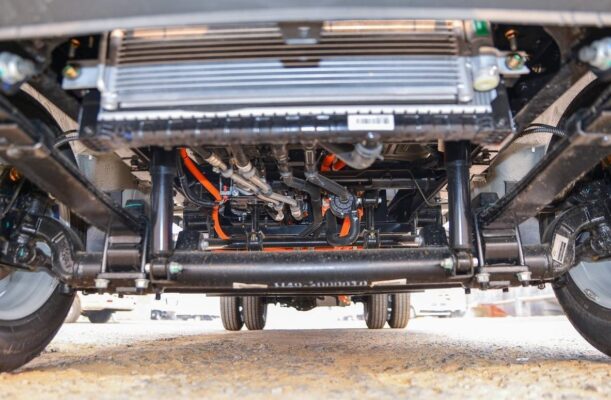
2. Civility and Yield to Pedestrians Crossing the Road
Showing courtesy and giving way to pedestrians when they are crossing the road is not only a legal requirement but also a sign of a responsible driver.Instances of drivers rushing past pedestrians are unfortunately not uncommon, but it’s heartening to note that truck drivers often set a commendable example. In major cities like Xi’an, Lanzhou, Beijing, Shanghai, and Zhengzhou, we have witnessed the noble gesture of large trucks stopping to allow pedestrians to cross safely, even if it means holding up the traffic behind them.
This act of kindness not only ensures the safety of pedestrians but also contributes to a more harmonious traffic environment. It teaches us that a few moments of patience can have a significant impact on the well-being of others.
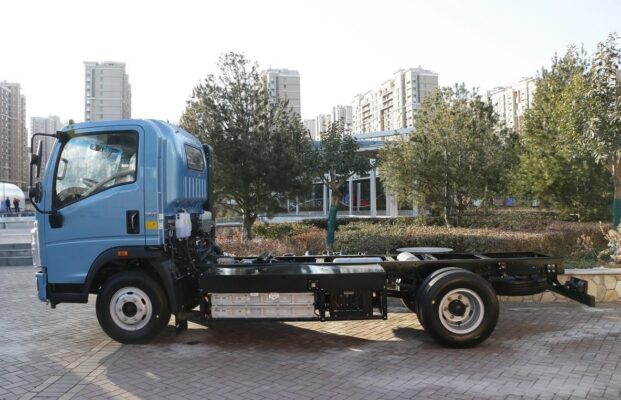
3. Pass Through Areas with Puddles slowly
Urban roads often have low-lying areas that accumulate water during rainfall. These waterlogged spots are frequently located near bus stops or non-motorized lanes, where pedestrians might be waiting or passing by. As a conscientious driver, it is our responsibility to slow down when approaching such areas to prevent splashing water on those nearby.
Consider a rainy day when someone is waiting for the bus, already damp from the weather. A driver speeding through the puddle could soak them further, causing discomfort and potential harm. By driving slowly, we show empathy and consideration for our fellow road users.
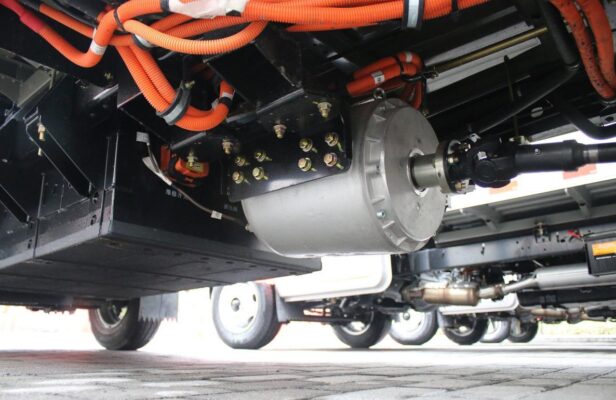
4. Never Occupy the Emergency Lane Under Normal Circumstances
The emergency lane on highways is reserved for genuine emergencies. Recently, I came across a video that depicted a congested section of the expressway. To my pleasant surprise, all the trucks were neatly queued and parked in the designated driving lane, with not a single one encroaching upon the emergency lane.
This disciplined behavior showcases the professionalism and responsibility of truck drivers. It serves as a reminder that we should respect the purpose of the emergency lane and refrain from using it unless it’s a matter of life and death.
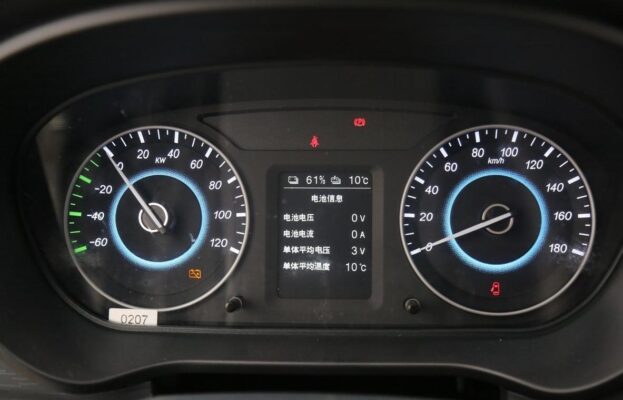
5. Switch to Low Beam When Meeting Vehicles on Two-way Lanes and Don’t Change Lights Arbitrarily
Driving on two-way lanes at night poses unique challenges, particularly when it comes to proper headlight usage. Experienced drivers have mastered the art of anticipating and responding promptly to oncoming vehicle lights. When the high beam is on, they keep a sharp lookout for the road ahead. As soon as the lights of the opposite vehicle flash, they immediately switch to the low beam, demonstrating a textbook-like response.
Conversely, arbitrary light changes can cause temporary blindness for the oncoming driver, significantly increasing the risk of accidents. A moment of incaution in light management can have disastrous consequences.
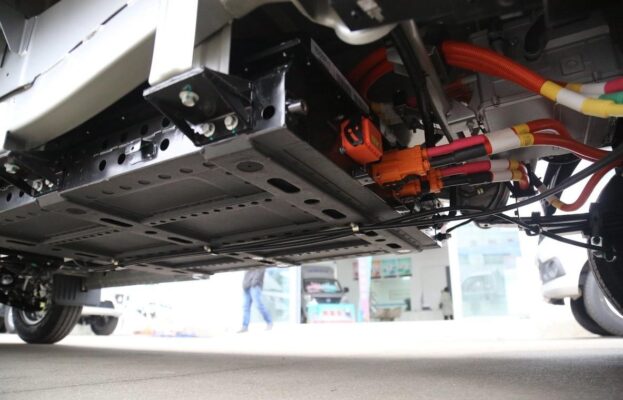
6. Take the Initiative to Yield for Overtaking
The act of taking the initiative to yield when another vehicle attempts to overtake is a common courtesy practiced by many large truck drivers, especially during nighttime driving. Some smaller cars may be traveling at higher speeds. When they signal their intent to overtake, the truck driver’s instinctive move to the right to create more space for the overtaking vehicle showcases a cooperative and safety-conscious mindset.
This simple gesture helps maintain a smooth flow of traffic and reduces the potential for dangerous maneuvers and close calls.
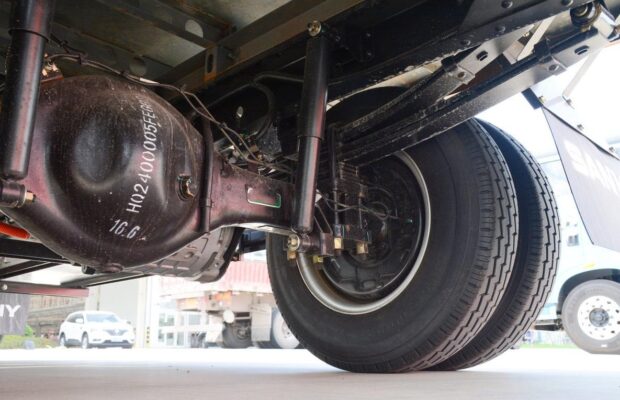
7. Slow Down to Below 60 Before Entering the Tunnel
Tunnels present a unique set of challenges due to sudden changes in visibility and road conditions. Winter can bring additional hazards such as water seepage and icy patches. Many accidents occur when vehicles fail to slow down as they enter the tunnel, only to find themselves helpless when faced with unexpected situations.
Always remember to adhere to the posted speed limit when entering a tunnel. Not only does this safeguard your own life but also provides a valuable reference for the vehicles following behind.
In addition to these seven key actions, there are several other aspects that contribute to safe driving. Regular vehicle maintenance is of utmost importance. Ensuring that brakes, tires, lights, and other components are in top condition reduces the risk of mechanical failures on the road. Maintaining a proper following distance from the vehicle ahead allows for sufficient reaction time in case of sudden stops or changes in traffic flow.
Being vigilant about the weather conditions and adjusting driving accordingly is also essential. During heavy rain or fog, reducing speed and increasing the gap between vehicles is crucial for visibility and safety. Eia kekahi, avoiding distractions such as using mobile phones or engaging in intense conversations while driving helps keep the driver’s focus on the road.
Driving skills and habits are developed over time through consistent practice and a commitment to safety. Every decision made behind the wheel has the potential to impact not only our own lives but also the lives of others sharing the road. By consciously implementing these simple yet powerful actions, we can all strive to be the safe and respected drivers that our communities deserve.
Let’s make our roads a place of safety, courtesy, and responsible driving. Each journey we undertake can be a testament to our dedication to protecting lives and ensuring a smooth and secure transportation experience for all. No laila, the next time you get behind the wheel, remember these seven actions and drive with care, confidence, and a sense of responsibility.